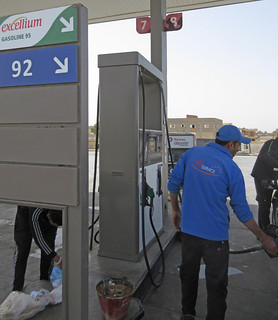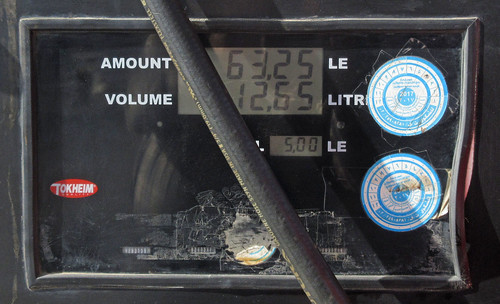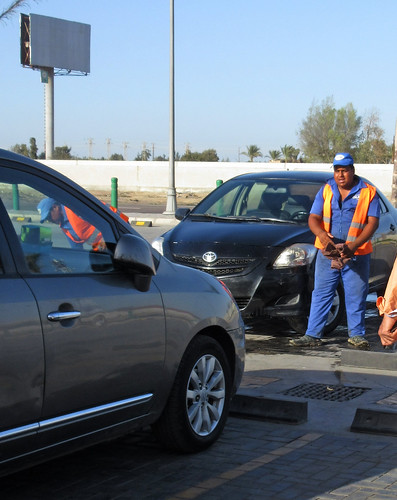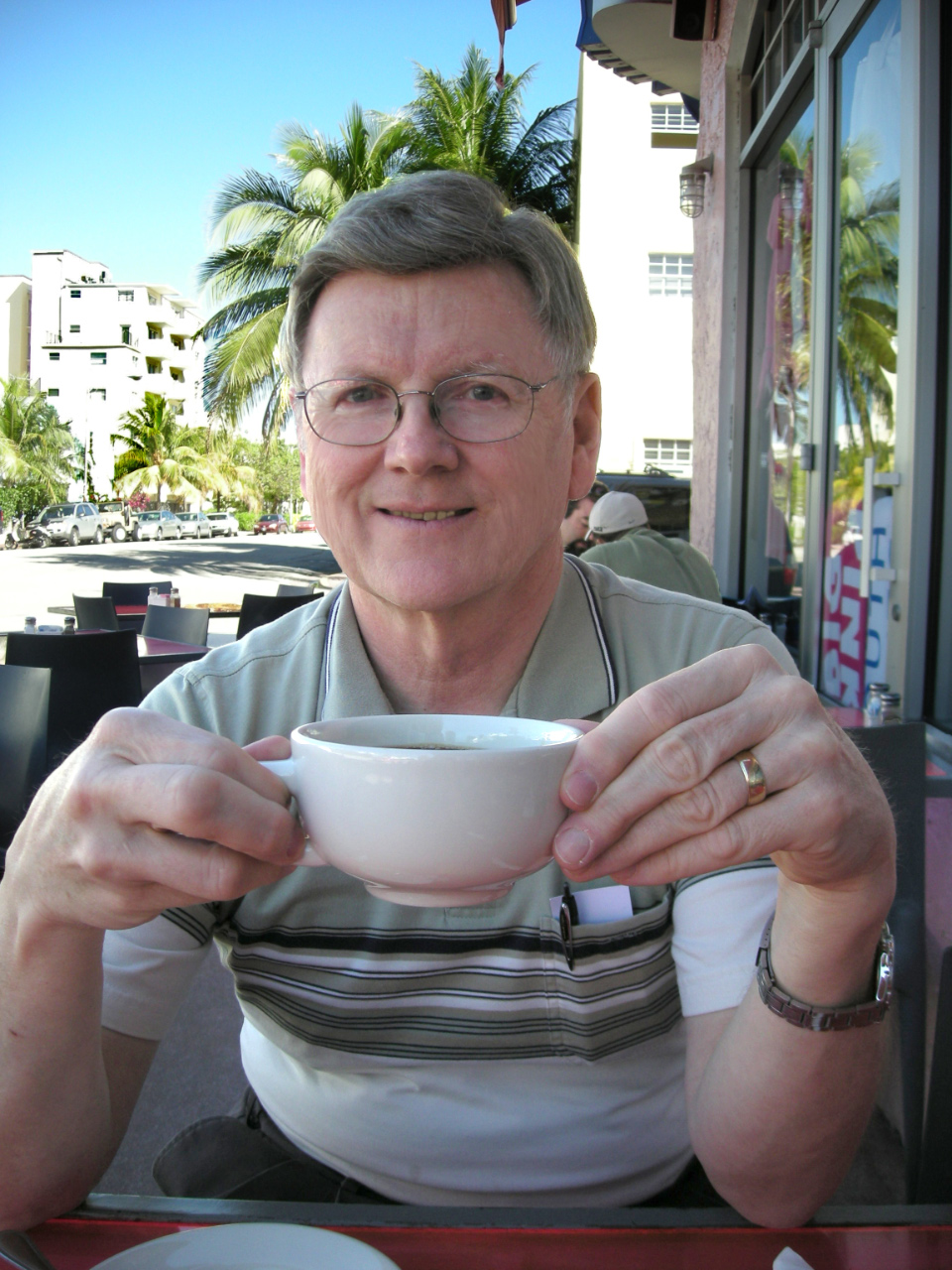Just a couple of weeks after we arrived last month, one of my dear friends and contributors to the computer innovation in the early 1950s sent me this link to an article in The Economist decrying the market distortions caused by Egyptian government subsidies. They are right, of course, and my friend recognizes market distortion when he sees it because he lives in Palo Alto where a "tear-down" house on a small lot goes for two or three million dollars and the buyers assemble two or three lots to put up a new place.
But, let's get to the price of gasoline. Last year, fueling up with 92 octane cost 3.50 EGP per liter. This year it is 5.00!


Even The Economist sees a glimmer of progress here in the form of reduced government subsidies:
Pressed by the IMF, the Sisi government is curbing some subsidies and shifting towards cash transfers. Fuel subsidies were 3.3% of GDP in the 2016/17 financial year, down from 5.9% when Mr Sisi took office—a big shift.The reality is, though, that 5.00 EGP per liter is still just $1.11 per gallon - and I don't think many people reading this post will offer sympathy.
But The Economist was hot on another issue too. Water!
Water is probably the most sensitive commodity of all. Ever larger numbers of Egyptians cluster around the Nile, tapping its waters for their crops, factories and homes. The country’s population is expected to grow from 99m to 120m by 2030. Pricing water properly would encourage conservation. Instead, Egypt allows farmers to take water for nothing, paying only the cost of pumping it. Urbanites are supposed to pay small fees, but these often go uncollected. As a result, Egyptians waste torrents of water growing rice, hosing down pavements and failing to recycle. “We have to dig deeper and deeper to get water,” says Abdel-Fattah, a farmer. “I’m worried, and anyone who says he’s not worried about water is lying.”After four days on the road, one of them spent partially in the clutches of a small Khamaseen (dust storm), Rashid's car was in need of a clean-up. At our last rest stop on the return to Cairo, these two fellows washed and rinsed us back to clean.

I just missed getting a picture of them throwing two five-gallon buckets of water over the top of the car for a final rinse.
Price for the wash was negotiated up front with payment due after completion. Rashid never read "The Art of the Deal," but he was willing to walk away if he didn't get the wash for twenty pounds ($1.17) - most patrons here were paying thirty. Always negotiate hard in this country.!





No comments:
Post a Comment